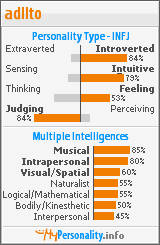
A cello frequently features in my dreams and I see it very much as a metaphor for myself. At the end of February 2003 I read Henri Nouwen's The Wounded Healer and it was one of those moments when I realised that I don't have to have it all put together to be effective. The Talmud records a Rabbi came to Elijah the prophet asking "When will the Messiah come?" to which the reply was "Go ask him yourself!" "How shall I know him?" "He is sitting among the poor covered with wounds. The others unbind all their wounds at the same time and then bind them up again. But he unbinds one at a time and binds it up again saying to himself, 'Perhaps I shall be needed: If so I must always be ready so as not to delay for a moment.'"
Nouwen names these wounds as alienation, separation, isolation, and loneliness. For the healing task Nouwen uses the word hospitality which "is the virtue which allows us to break through the narrowness of our own fears and to open our house to the stranger, with the intuition that salvation comes to us in the form of a tired traveller."
My pastor has been strong enough to call the presentation of "having it all together, heresy!" I'm not sure of the word but at minimum it is a lie or deception. Ronald Rolheiser's classic book The Restless Heart notes that to be humans is in fact to be intrinsically lonely, but to be human is also to have a choice to respond. But loneliness is not wholly a negative experience because being human carries a call to love. "For loneliness is one of the deepest, most universal, and most profound experiences that we have... we pay a heavy price for not admitting our loneliness, facing it squarely, and grappling with it honestly." Brokenness is part of authenticity, however when it becomes Nietzsche's ressentiment it acquires the vengeful bitterness applied to or used by victims. When wounds become a weapon as will to power then heresy becomes real with all the bandages pulled off. What should create community is a common loneliness and call to tend each other's wounds.
Blaise Pascal noted that the sole cause of humanity's unhappiness is that each does not know how to stay quietly in their room. But staying in our room is impossible. For Augustine, the 4th century theologian, to be human is to have a restlessness in built and our mixed existence of partially living in the city of God and partially in the city of men leaves us "incomplete and thirsty, restless and lonely, longing always to bring this pilgrimage to an end, to return to God and our true homeland." A dark night experience demonstrates this, that in darkness the soul searches ever more desperately and finds authentic faith through the experience of casting prayers to God in raw faith into the darkness. It is this very restlessness/darkness that calls forth hospitality and reminder that there are fellow travellers.
Sunday, September 9, 2007
Cracked, scarred beauty
at
10:32 PM
![]()
Labels: dark night, dreams, music, Nouwen, what's the question?









